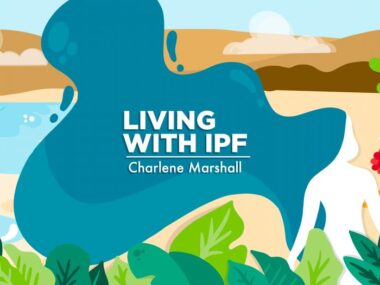In post-transplant life, sometimes it’s just one of those days
Heavy thunderstorms were a precursor to some bad luck and tough news
Written by |

Do you ever have one of those days? You know the kind: Nothing seems to go your way and the day ends with a huge sigh. When I was diagnosed with idiopathic pulmonary fibrosis, I learned that not every day would be sunshine and roses.
Last Wednesday was a bad day. The good news is that it wasn’t entirely medically related. The not-so-good news is that it was partly medically related.
The day began normally, with me walking my dog, Beau, to get my morning exercise. Thunderstorms were expected to move into the area. I was scheduled to meet at four congressional offices to push for the reintroduction of the Supplemental Oxygen Access Reform (SOAR) Act of 2024 and to seek support for the National Heart, Lung, and Blood Institute and the continued inclusion of pulmonary fibrosis as a focus area in Congressionally Directed Medical Research Programs.
The rain arrived around midday, and everything went downhill from there. I have a hybrid truck that’s less than a year old, and as I was approaching a stop sign in heavy rain, the vehicle’s anti-collision system activated, which applied the brakes and put the truck in park. There were no other vehicles in sight. It took about two hours for the tow truck to arrive.
Post-transplant adventures
When I received a bilateral lung transplant in July 2021, I knew I was accepting a lifetime of medical surveillance. In a previous column, I shared that, during a recent routine CT scan, the radiologist observed a compression fracture in my 10th thoracic vertebra (T10). I didn’t have any back pain, so doctors recommended exercises for me to do and told me to return in 12 months.
Since then, I’ve also had a magnetic resonance angiogram to measure any potential changes related to my ascending aortic aneurysm. Thankfully, the radiologist reported that it was stable. But they also discovered a compression fracture of my seventh thoracic vertebra (T7) that doctors hadn’t seen earlier.
Some of the medicines we rely on to sustain life can be harmful. I’ve been taking prednisone, a steroid known to cause problems with bone density, for about eight years. Bone density loss can occur quickly, after just a few months of taking steroid treatments. So I knew that I could eventually have problems with bone density. My doctors had prescribed calcium and vitamin D to help strengthen my bones.
When the T10 compression fracture was discovered, I added orthopedics to the list of clinics I’d have to visit regularly. Because of the T7 compression fracture, I now have to go to an orthopedic appointment this Friday for further evaluation.
I’ve decided to take all of this trouble in stride. I’m thankful for the medical surveillance that comes with my post-transplant life. Medication side effects and a suppressed immune system are necessary to reduce the risk of organ rejection. Monitoring my health is the least I can do to ensure that the legacy of my donor lives on. It also allows me to make every breath count.
Note: Pulmonary Fibrosis News is strictly a news and information website about the disease. It does not provide medical advice, diagnosis, or treatment. This content is not intended to be a substitute for professional medical advice, diagnosis, or treatment. Always seek the advice of your physician or other qualified health provider with any questions you may have regarding a medical condition. Never disregard professional medical advice or delay in seeking it because of something you have read on this website. The opinions expressed in this column are not those of Pulmonary Fibrosis News or its parent company, Bionews, and are intended to spark discussion about issues pertaining to pulmonary fibrosis.








Leave a comment
Fill in the required fields to post. Your email address will not be published.